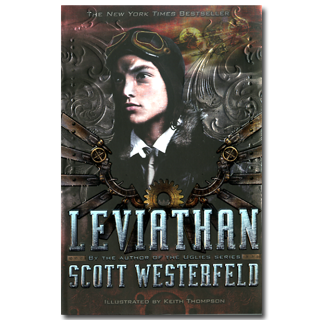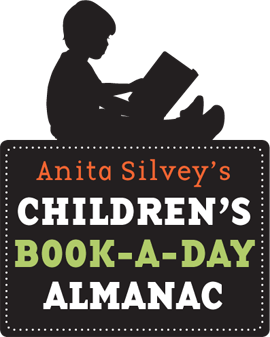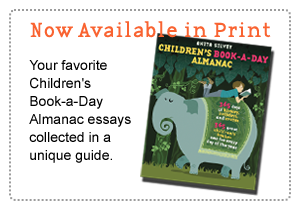
A FEW OTHER EVENTS FOR
NOVEMBER 22:
- Happy birthday Valerie Wilson Wesley (Willimena Rules series) and Marjane Satrapi (Persepolis, Monsters Are Afraid of the Moon).
- It’s the birth date of Mary Ann Evans, pen name George Eliot (1819–1880), Silas Marner, The Mill on the Floss.
- It’s Go for a Ride Day. Take a ride on a horse, a bicycle, a train, a roller coaster, or whatever you fancy! Read Let’s Go For a Ride by Maxwell Newhouse, Roller Coaster by Marla Frazee, Mr. Grumpy’s Outing by John Burningham, Amelia and Eleanor Go for a Ride by Pam Munoz Ryan and illustrated by Brian Selznick.
- It’s Start Your Own Country Day, which itself started at the 1939 World’s Fair in New York, whose theme was “Building The World of Tomorrow.”
The genre of science fiction has always provided endless opportunities for writers—as well as endless memories for the young people who read their work. Today marks the first interracial kiss on TV, between Captain James Kirk and Lt. Uhura of Star Trek. Tomorrow in 1963 the BBC broadcast the first episode of Doctor Who, the world’s longest-running science fiction drama.
So what science fiction books written for the young readers today are on their way to becoming classics? Certainly one of the most original recent offerings, Scott Westerfeld’s Leviathan, for children ages 10–14, provides a fascinating glimpse into a history that might have occurred. Alternate history, a science fiction genre began by Philip K. Dick and perfected by Harry Turtledove, permits the writer to change the facts of the past and hence create a totally imagined world that is still rooted in our own. In his highly inventive steampunk novel which blends high tech fantasy with Victorian era surroundings, Westerfeld conjures up a fascinating vision of the twentieth century—if history had played out with slight changes.
In the world of Leviathan, Charles Darwin continues scientific explorations and finds ways to fabricate creatures from DNA. Although opposition emerges from the Monkey Luddites, Darwinists and British followers invent scores of magnificent beasts. Many of these creatures become tools of war—like the Leviathan, a living, hydrogen-filled animal that serves as deadly airship. The German alliance, however, develops mechanical creatures that walk on legs; these machines look like living beasts. Hence the First World War will be played out between the Darwinists and the Clankers.
After the assassination of his parents, Prince Aleksandar attempts to flee with his tutors, to safety in Switzerland. He learns to pilot one of the mechanical walking warships and survives harrowing circumstances. Meanwhile in England, Deryn Sharp, one of the most engaging heroines of recent fiction, has disguised herself as a boy so that she can become a midshipman in the British Air Service. She discovers that pulling off a male disguise is a lot of work and effort, but Deryn succeeds and becomes part of the Leviathan’s crew. While on board, she gets assigned as a cabin boy for Darwin’s granddaughter Nora Darwin Barlow, who is on a scientific and diplomatic mission. Filled with exciting battles and fascinating details about the manufactured creatures, the story of these two engaging protagonists is almost impossible to put down. Not only is the action engaging, but Westerfeld has also invented some of the best epithets in recent fiction—sayings like “barking spiders!”
So if you’d like an unconventional way to get young readers excited about history, pick up Leviathan and its sequel Behemoth. The book explores a period of time when the aristocracy and commoners lived very different lives and when women had to disguise themselves as men to do what they wanted to do.
Here’s a passage from Leviathan:
It stood taller than the stable’s roof, its two metal feet sunk deep into the soil of the riding paddock. It looked like one of the Darwinist monsters, skulking in the darkness.
This wasn’t some training machine—it was a real engine of war, a Cyklop Stormwalker. A cannon was mounted in its bell, and the stubby noses of two Spandau machine guns sprouted from its head, which was as big as a smokehouse.
Originally posted November 22, 2010. Updated for .













I adore this book. The creatures that Scott Westerfeld have conjured up are absolutely fascinating to read about, and the illustrations by Keith Thompson enhance the already strong story. World War I seems so long ago, but this alternate reality WWI is fresh and futuristic. The reader know how events are supposed to play out, but the excitement in this book is how Westerfeld defies our expectations and inserts riveting stories into the places we least expect.
I was lucky enough to host the lovely Scott Westerfeld on one of his stops on his Leviathan tour. The book was marketed well–he played a trailer (http://www.youtube.com/watch?v=PYiw5vkQFPw) for a crowded audience, which caught the attention of a few passersby, many of whom ended up purchasing the book and bringing home a Leviathan postcard!
Oh, Anita, a little gasp escaped my lips when I first glanced your review. This is one of my favorite finds of the year. After Westerfeld’s UGLIES series, Donalyn Miller suggested his Midnighters series, both riveting. Then hubby and I both devoured Leviathan & Behemoth, then had to wait for Goliath. It was torture but then it was in our hands. Hubby retired 3 years ago and I suggested he start reading. First book I put in his hands was a YA book, Violette Wings by local Colorado writer Victoria Hanley. I’m happy to report that he reads every single day now, many of which are YA books. I even bought him a notebook to record his readings. This makes this librarian’s heart soar! Thank you Anita!
Bookjeannie: Thanks for pointing out that this series is perfect, as well, for adults who love the alternate history concept.
Our book club enjoyed reading Leviathan and learning about the world of steampunk. It’s a way of life! Westerfeld’s mind keeps opening doors I, as a reader, am grateful to enter.
Although the phrase “barking spiders” is not new, I appreciate the review and will get to the library for Leviathan. Thanks!